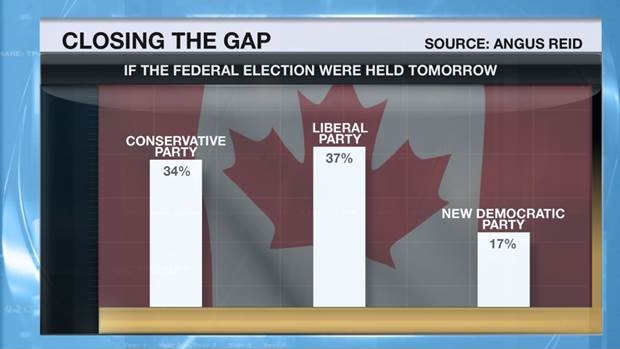Jun 15, 2017
Andrew Scheer’s economic vision: More free trade – just not with China
Although new Conservative Party Leader Andrew Scheer is unknown to one in three Canadians, he is seen as the best leader to handle economic issues, according to a recent Angus Reid Institute poll. He’s also closing the gap between the Conservatives and the Liberals. If the federal election were held tomorrow, 37 per cent of Canadians say they would vote Liberal, compared to34 percent for the Conservatives.
Scheer spoke with BNN Thursday to talk about everything from Trump and trade to the Canadian dollar.
Q: How would your approach to Donald Trump differ from Prime Minister Justin Trudeau
“I think the Prime Minister is focused on virtue signaling and not practical measures. When [Former U.S.] President Obama was still in office, we had an opportunity to get a deal on softwood lumber. When we saw that much vaunted state dinner with Trudeau and Obama, did Justin Trudeau bring his natural resources minister to fight for a deal for Canada? No, he brought his in-laws instead. That’s where I would differ.
We’re not going to convince the Trump administration or the American Congress to keep those borders open and allow the free flow of goods just out of the goodness of their heart. We have to go down and find allies in the U.S. economy.
What [Trudeau’s government] is just starting to do is very late and I don’t believe it’s enough.
It’s almost like they were surprised that the Trump administration went down this road. They weren’t reading the signals during the previous election campaign and preparing for the hard work that would be necessary.”

Q: Would you remove or reduce the restrictions on foreign ownership in protected industries?
“There are a lot of areas where I want to deregulate and just get government out of the way. There are a lot of economic benefits to Canadians, both on the consumer level and on the investment level and for companies to be more competitive.
I’ve been very clear on supply management for the dairy sector. That is one that I will always protect.
But on things like telecoms, I believe there is space to move there to enhance our economy and open up for [competitive] investment.”
Q: When it comes to free trade deals, outside of our relationship with the U.S., what primary country would you want to have a deal with?
“With the U.K. leaving the European Union, we were unable to get a bilateral trade deal, even though we have the same language, rule of law, and parliamentary institutions, and the same head of state. That should be low hanging fruit. It’s a dynamic economy with a lot of similarities to Canada. We could probably do that very quickly.
There are a lot of other countries around the world that we have great ties with: India and markets in Asia.
We have to diversify our portfolio and enhance those relationship with other countries.”
Q: What about China?
“There are a lot of concerns about a free trade deal with China.
China still has a lot of state-owned enterprises that distort the marketplace. They don’t have the same labour standards or environmental standards. In many cases they don’t have the same accountability and transparency for publicly-traded companies that we have in Canada.
That’s something I think a lot of Canadian manufacturers and small business owners will be very concerned about if a free-trade deal is pursued with China by this Liberal government.”
Q: If a carbon tax isn’t the most effective way of reducing carbon, what is the solution?
“I reject the premise that carbon taxes can be effective in doing that. In my view it’s a regressive tax that just makes the quality of life less affordable for so many Canadians. It’s unfair. It hurts people in rural and remote areas far more than others.
Canada can play a leading role in exporting our cutting-edge technology. We make up about 1.6 per cent of global emissions. We can have a far greater impact if we’re helping countries like China and India reduce their emissions with our cutting-edge technologies and we can do it in a commercially viable way that benefits both countries.”
Q: Do you still want to cut heating and electricity bills?
“Yes. It’s what I call the “anti-carbon-tax” tax cut. It’s a way of making life more affordable for Canadians.
I will remove the GST and HST off home utilities.”
Q: What’s a reasonable price for the loonie?
“Currency issues are more often a symptom of the economy than a driver.
It should be a sign of growth, and optimism and confidence for the Canadian economy.
Traditionally when it’s in that mid-80’s point, there seems to be a bit of equilibrium.”
Q: Would you change the Bank of Canada mandate?
“Fundamentally having a stable inflation target is important.
It is best left to governments to have a plan to create jobs and opportunities and let Canadians judge that. When you get in the business of manipulating things, it always ends up causing more problems than it solves.
We know that at some point the Bank of Canada is going to have to start increasing rates. Just a quarter of a percentage point increase in interest rates will mean a least a billion dollars of new tax dollars going just to service the debt.”
Q: You promised to balance the budget in two years if you become Prime Minister. The Liberals are running tremendous deficits. You’re going to have to cut. What do you cut?
“The reason that I’m so confident [that I don’t have to cut anything] is because the previous Conservative government got back to balance while still increasing funding for important services like health care, and we lowered taxes.”

